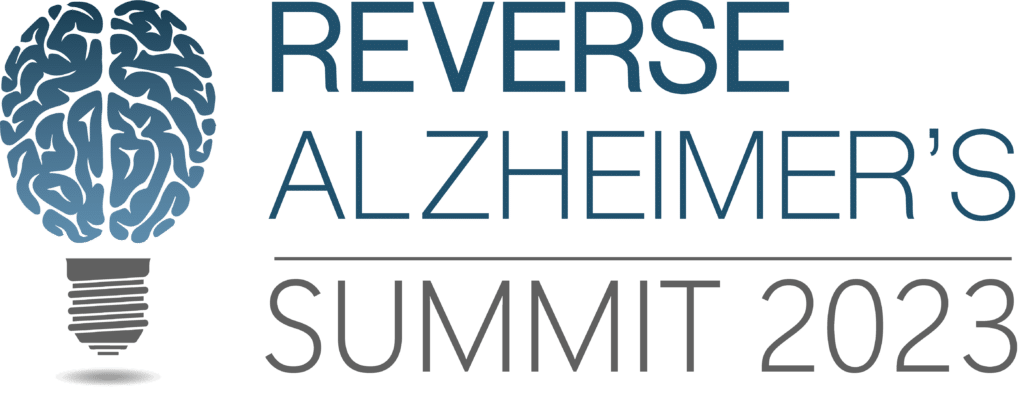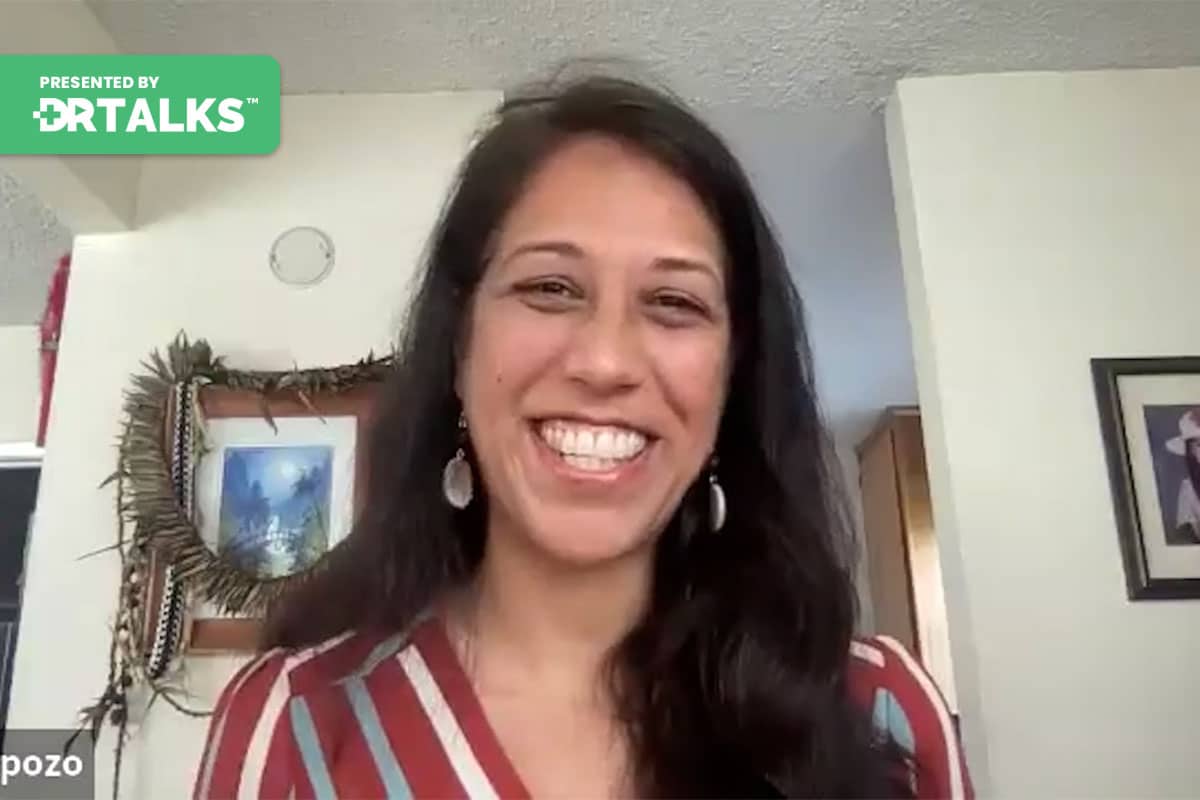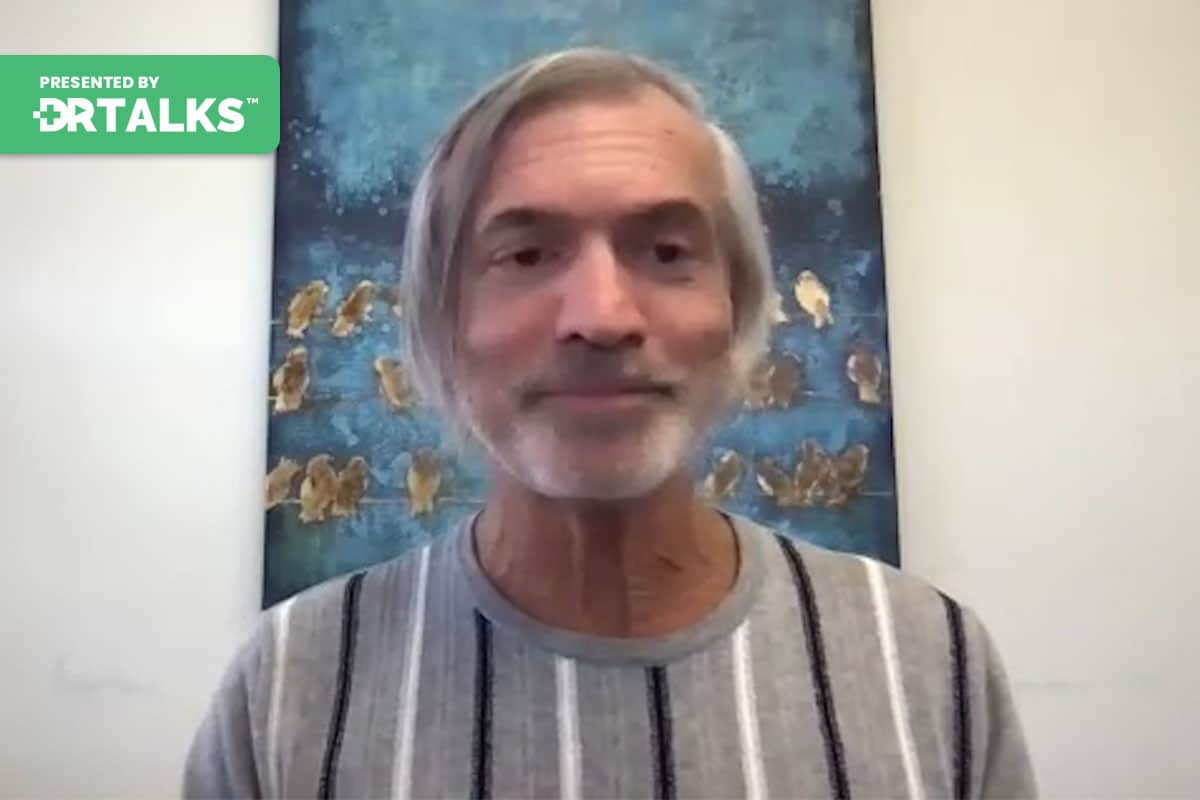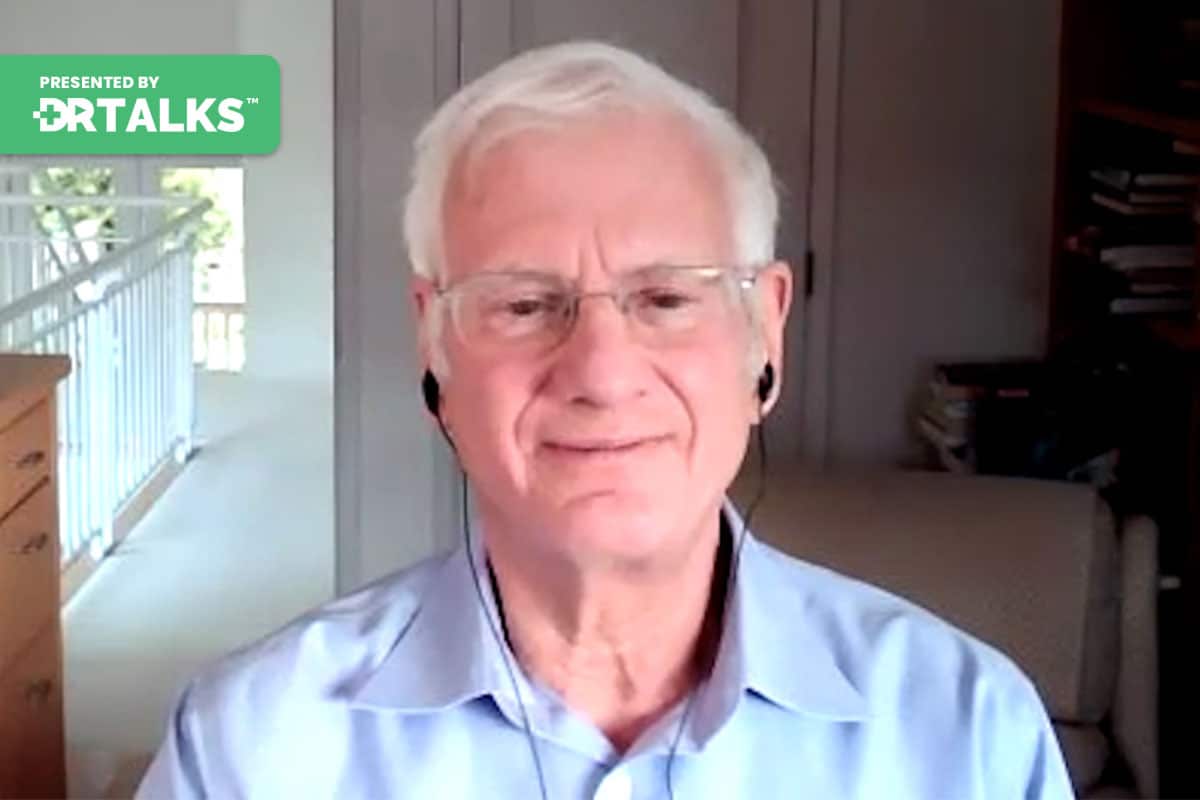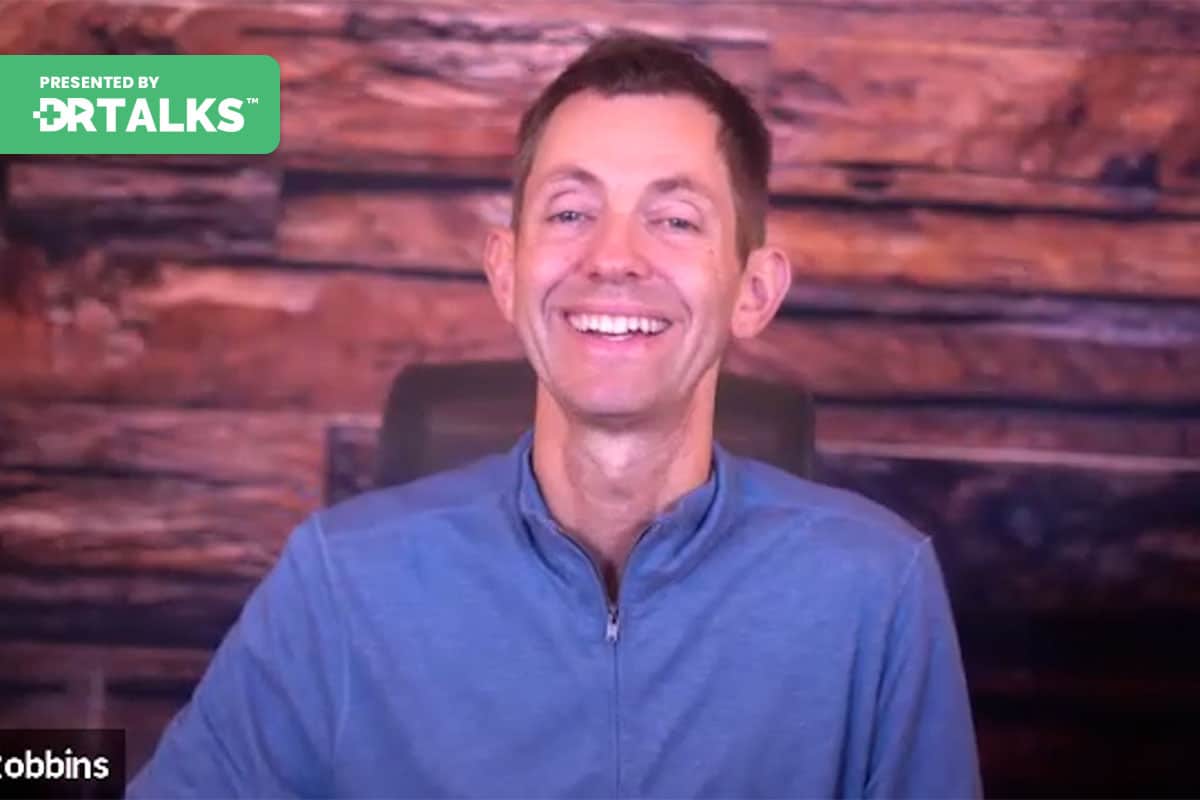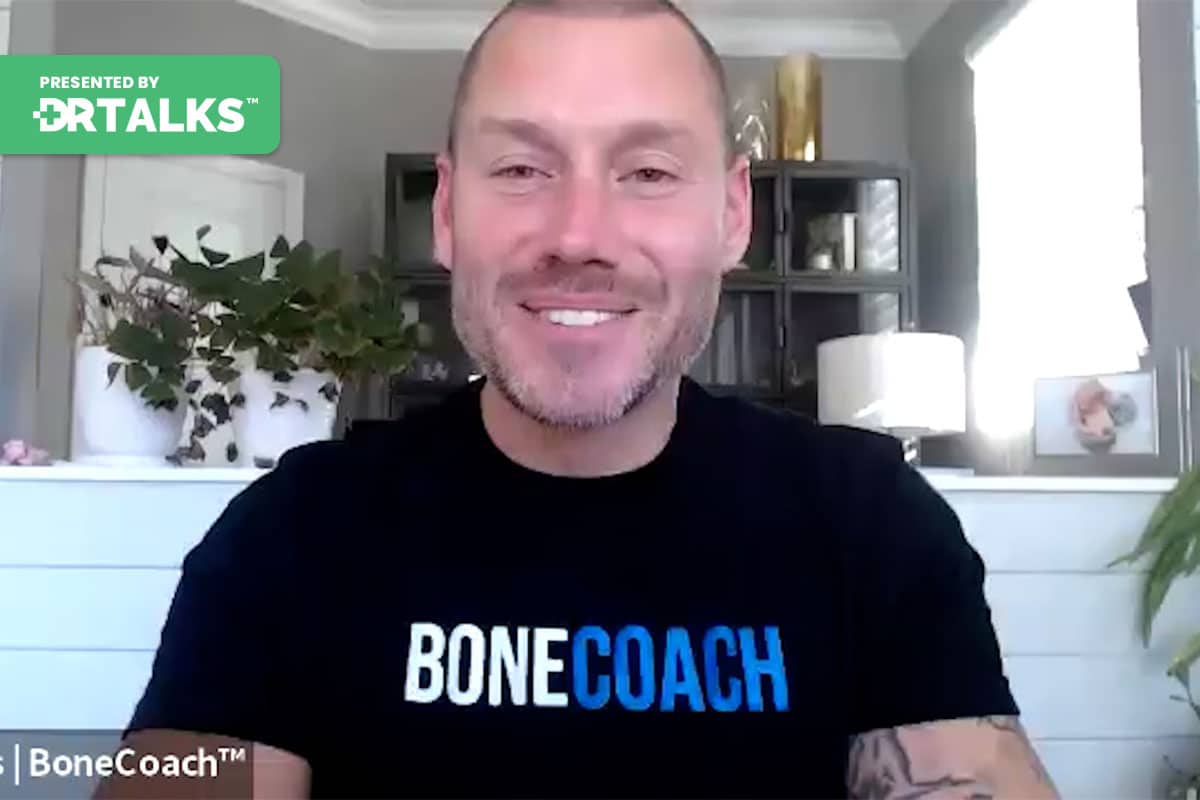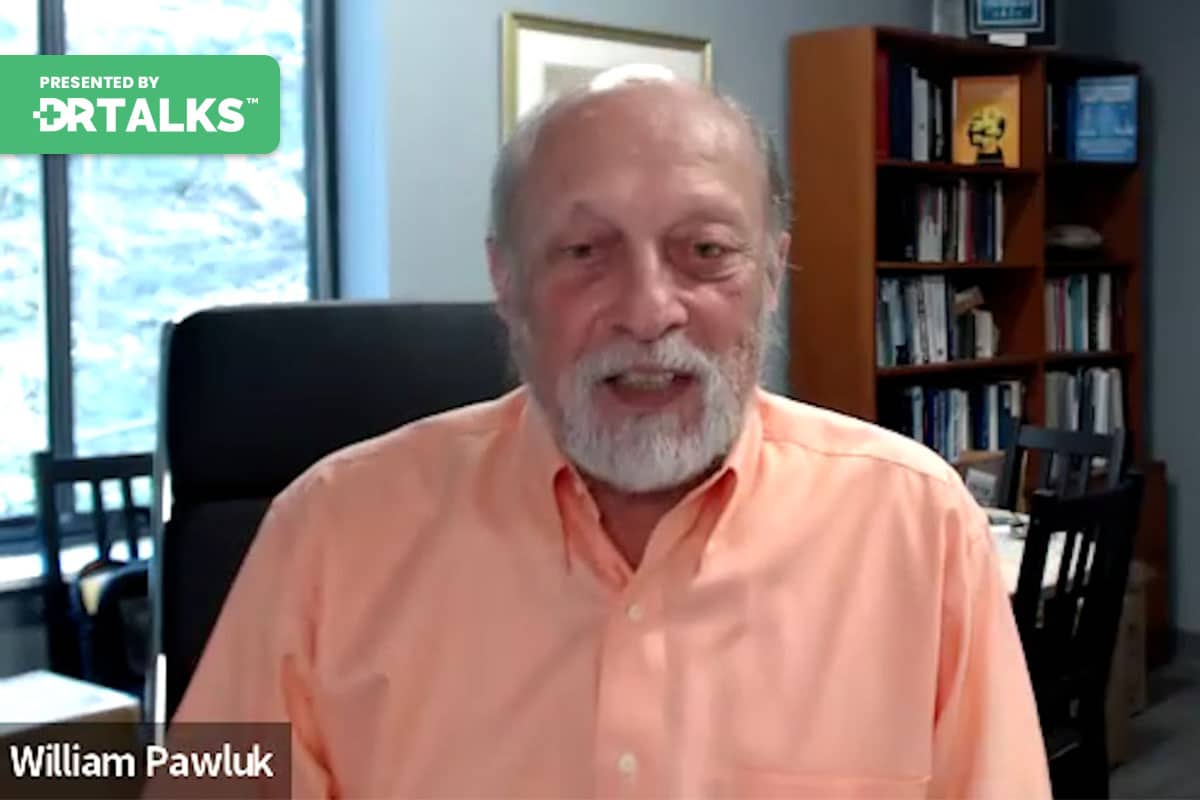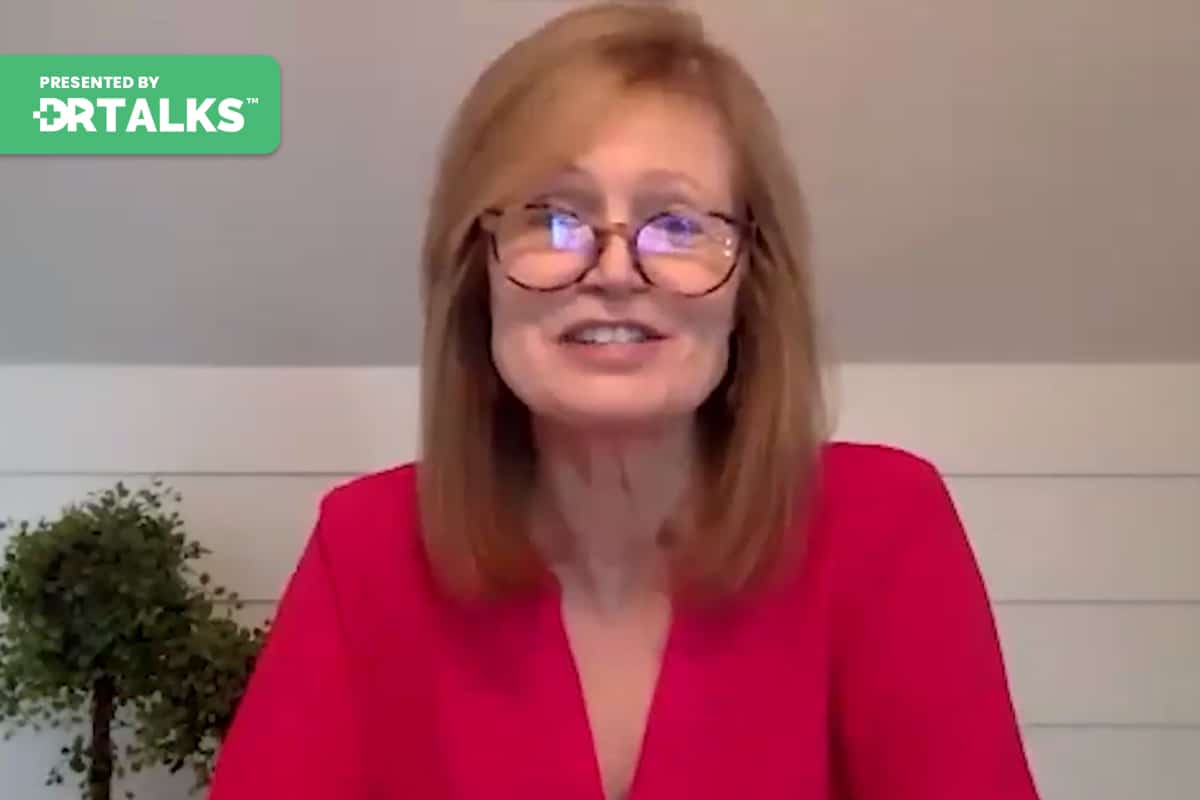Join the discussion below
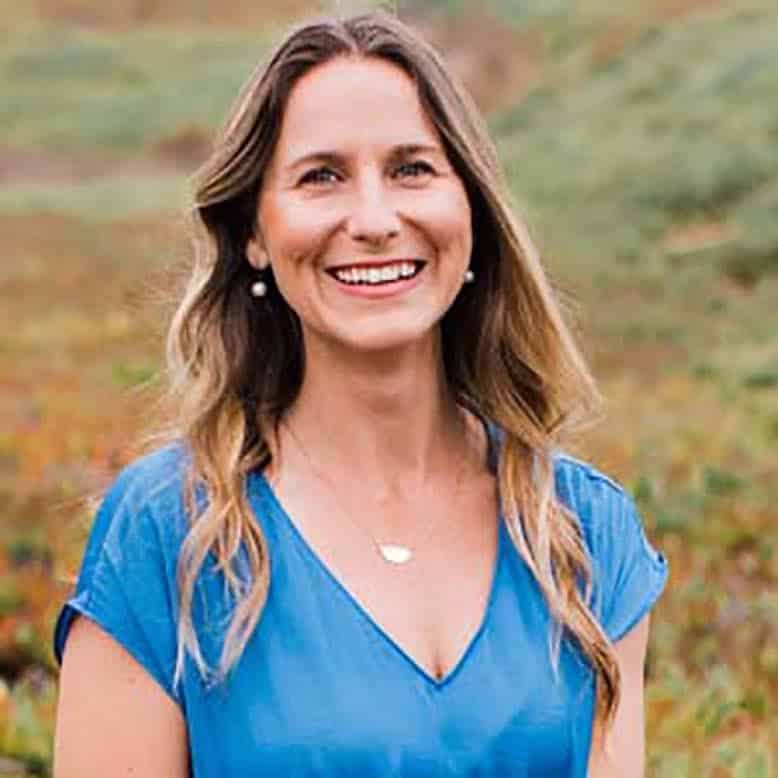
Dr. Heather Sandison is the founder of Solcere Health Clinic and Marama, the first residential care facility for the elderly of its kind. At Solcere, Dr. Sandison and her team of doctors and health coaches focus primarily on supporting patients looking to optimize cognitive function, prevent mental decline, and reverse... Read More
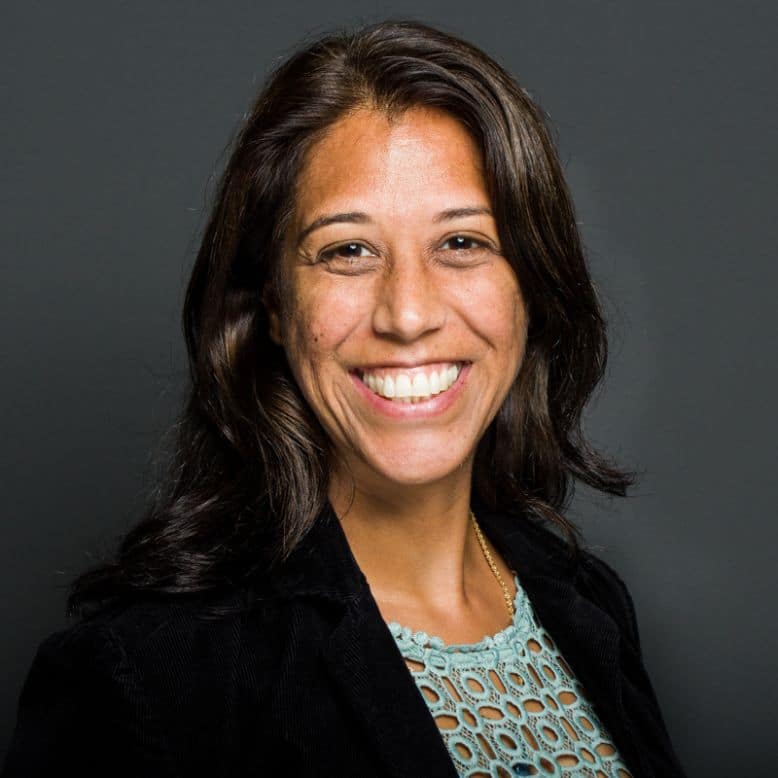
Momi Rapozo is the daughter of Roxanna Rapozo, one of the original Marama residents. After her mom's dementia diagnosis in 2014 she searched for a way to prevent and potentially heal her mom's dementia. She came across the Bredesen Protocol, Dr. Sandison and Marama. She has seen, first hand, the... Read More
Momi Rapozo tells her personal story of her family’s journey with dementia
- Learn about improvements you can expect to see in the protocol
- Discover how to find peace and love in the process of caring for your loved one with dementia
- Learn about what speed bumps you can expect to encounter on this journey
Heather Sandison, ND
Welcome to this episode of the Reverse Alzheimer’s Summit. I am your host, Dr. Heather Sandison. And I just I am tickled, delighted, and excited to introduce you to Momi Raposo. She is a friend and the daughter of Roxanna Raposo one of our original residents at Marama. After her mother’s diagnosis of dementia in 2014 Momi searched for a way to prevent and potentially heal her mom’s dementia. She came across the Bredesen protocol, and me, and Marama. And she has seen firsthand the benefits of being in this immersive experience and she is passionate about sharing the story. Momi actively shares her mom’s progress through her blog, dementiahealing.org, as well as on her social media pages. She is also hosting meetup groups where she and others can share their experiences, share what has worked and what has not with other families who are new to this. As we all know nobody wants to learn anything about dementia until the day that you need to know everything so that you can support your loved one, and this really helps people get up the curve of learning. She understands the challenging impact that this disease has on families and is committed to creating a world where a dementia diagnosis is not the end of the road. Momi is inspired by the level of care her mother received at Marama. Thank you. That she is dedicated to opening up her own facility in Southern California where she can continue transforming the standard of care for aging adults with cognitive decline. So, Momi welcome.
Momi Rapozo
I am glad and grateful to be interviewed. And I am just super excited to be here. Thank you so much for having me.
Heather Sandison, ND
Of course. So, I want other people to know what was the path it took for you to find the protocol, the Bredesen protocol, his books, and then Marama.
Momi Rapozo
Yeah. Our path was probably similar to a probably to a lot of people. My dad passed away in 2010, and I think that is what triggered for my mom in many ways into her that spiral of cognitive decline. A traumatic event like that definitely impacts your limbic system. It triggered a lot of her anxiety and depression. She had a lot of panic attacks, and I think that just having her body out of balance, and homeostasis is really what kind of led us on that path. I think we started seeing her cognitive decline in 2012 and then she was probably formally diagnosed in 2015, I think, as I said. And then when that formal diagnosis happened, I think is when I was like, my goodness. Because we were in denial which a lot of families are. We are like, okay, well, she is asking the same questions over and over again not a big deal. She left the stove on not that big of a deal. Let us just watch it and hopefully, it does not progress. That was, I think a wake-up call with the formal diagnosis by her primary care physician at the time. And it just made me wake up to the fact that I know, you know I had to figure something out. I did not want my mom to go down this path of dementia.
And I had not thought about it, to your point, Dr. Sandison is completely true. You do not think about it until you are impacted directly or you have a loved one that has a diagnosis. And I just started researching, I started getting into Google and digging and digging and came across, Dr.Bredesen’s book, came across the protocol. I actually also reached out to some practitioners and I also reached out to some coaches. Jen Felix actually, is one coach who has been a Recode Coach for many years and also came across you. And I think the biggest challenge, one of the biggest challenges, I think initially is the commitment from my mother. She was used to a lifestyle that she was living away that she was eating for years and it did not necessarily, she did not necessarily understand the need, the necessity to make that type of a change.
Getting her on board I think was one of the biggest challenges but one of the other ways that I also came across Marama specifically after talking to Jen, I had a quick conversation with her. And then I think she was looped, she is looped into the Apollo community. And she forwarded an email to folks who were part of her meetup group about Marama. And I said, “Oh, my god, this is the answer.” This is how we are going to make this work. This is the hope, this is that glimmer of hope that I needed. And I reached out to you or applied online to, on the Marama website, and then I spoke with you. And then that is just basically how our journey started.
Heather Sandison, ND
So, When I met you and your mom she was living in an assisted living facility and COVID hit. And so I remember we had chatted a few times and I have even seen her as a doctor. And the hardest part was implementing because in the assisted living facility there are lots and lots of carbs available so it is almost impossible, just next to impossible to be on that diet especially as you said, your mom does not understand, she does not get that she needs to avoid fruit. She thinks of them as healthy, and remembering that you are not supposed to have them on a ketogenic diet when there are tons of bananas in front of you, and ice cream and everybody else is having it, it is really, really challenging. And then as COVID hit so everybody was isolated to their rooms and could not leave. Tell us a little bit about kind of that stage and then the move-in.
Momi Rapozo
Yeah. No. It is actually really interesting that you are talking about, Dr. Sandison that you talk about, we did see, right? I was like, and you were from Hawaii. We had that connection and I was like, no, I am choosing her. So we are going with Dr. Sandison even though we had to make a little bit of a drive, we are in South Bay. But I am very grateful to you, we are very lucky to be able to have this here in the San Diego area as well. But, after we had run all the labs you said that my mom had the highest level of Candida in her gut, and I do not know if that is more than any patient you have had. I do not know if that is still the case but that was definitely not necessarily a shocking discovery. I mean, my mom would wake up and eat a bagel before she would go to sleep. She would want to toast with peanut butter, and that was just a normal course for her. But, those were just some of the kind of smoking guns that we saw, and then also the dental care.
We had her in what is called, I consider a big box facility in the Chula Vista area, and the challenge with that. We moved her in initially there in 2019. Started working with you in I think January 29, 2020, excuse me. Definitely right before the pandemic. I tried my best to work with them to implement some changes to her diet but it is super as you know, critical to really be immersed in an environment where you have got that level of support. Where you do not see some of the things that the cakes or the muffins sitting around. Okay, let me just have one, very challenging. There was, I always say that they gave them dessert with every meal except breakfast and breakfast was like pancakes and syrup and French toast, and that just is not sustainable.
It is disheartening and that is probably the biggest challenge. And even now whenever we are going out to different festivals, for example, or just going to hang out with the family there is always that pasta around. They want to go to Olive Garden or whatever restaurant, and you just really have to be meticulous about what you choose on the menu because you know the impact. But yeah, it was, we saw you. I think the first time that we toured it. And you were you guys were still basically in construction.
Heather Sandison, ND
Yeah. It was, we were, it was pre-pandemic when we were still kind of turning everything over. And you are thinking about, and then pandemic kind of put things on hold and she did not move in the summer, right?
Momi Rapozo
Yes. She moved in by the end of the summer.
Heather Sandison, ND
2020.
Momi Rapozo
At the end of the summer. September.
Heather Sandison, ND
September 2020. Okay. Then what did you notice when she moved in?
Momi Rapozo
Well, it was obviously a shift in lifestyle for her, not everything is rosy.
Heather Sandison, ND
No. And in fact, I want people to understand that there is a big transition, and even with dementia whenever they move it is very disorienting so we expect that. And then moving into a place like Marama where you are on a sugar detox, you are on a TV detox, you are on a screen detox in general. And for some people, they are even detoxifying from alcohol and that can be uncomfortable. I know your mom went through a bit of that.
Momi Rapozo
Yeah, she definitely did. And, I mean, just to be honest with you also she has because of the limbic system impairment and some of the anxiety, and the fact that she is got with that whole the panic attacks and everything, the cortisol running through her system. I mean, her whole entire body is inflamed. And that just that experience and that feeling in itself kept her in bed. There would be times when I would get calls from the caregivers at the old facility and it was 10:00 in the morning and she had not gotten out of bed, and they are like, “Hey, help us get your mom out of bed,” We saw some of that at Marama.
But the amazing, I would say, probably within six months to eight months she was on track. But there definitely were those bumps in the road where she was, because I had communicated with her on the portal, the Facebook portal and she will call me and she will be like, “Mommy, they are not giving me a snack” or, “I can not eat something before I go to sleep, I need something before I go to sleep” and I am like, “Mom,” it took a lot of coaxing, it took a lot of explanation there were definitely was that going on.
Heather Sandison, ND
Just to be clear, we do three meals a day and two snacks in between those meals. We do snacks.
Momi Rapozo
There is no starvation, definitely not.
Heather Sandison, ND
No. Lots of calories. Before bed, there is that three-hour fast that is part of the Bredesen protocol so that you can get that really good restorative sleep. But she got used to it, she definitely got into a rhythm.
Momi Rapozo
She got used to it. And it is kind of amazing because maybe like I said, there are times when I would talk to her on the portal and I have mentioned or she would mention ketosis or I would mention ketosis and she is like, “Yeah, that is the fasting”, and I am like, yeah, how does she know that, I mean, it is just it was the awakening, honestly, and then that is really what I want, the point that I want to drive home is that the experience of seeing my mom awaken. I have on our website, I have before and after videos and it is a stark difference. We would before like maybe early on when she was at Marama, we would have conversations and pull whether people in family members or aunties from Hawaii, and we would be talking. During the conversation, she is just kind of chiming in like, “Julie, where do you live? Where do you live?” My aunty Julie and she would ask that the entire 20 minutes while we are talking.
I would say another major difference that I noticed is maybe eight months a year after she was at Marama she would be tracking the conversations, and she would actually be chiming in. That was just that was amazing to me, I was like, my goodness, very good, mom. You really see that awareness open up. You see that she is talking a lot faster. I look at a video when she was at Frederica and this is in May of 2020. That was the other big box facility, sorry, but she was very lethargic and very depressed, you could tell talking slowly, and obviously repeating herself, and when you look eight months later she is talking. Having a normal conversation. Truly amazing.
Heather Sandison, ND
And it was not just your subjective experience that changed there were also results, there were measurable results. Can you explain where how it was measured?
Momi Rapozo
Well, definitely, one of the lab tests we definitely saw improvement in the labs. Her homocysteine level went from 13 to 8, I believe. And I think, Dr. Bredesen likes to keep it seven and lower. We definitely saw improvements there but her MOCA scores improved. I think her lowest was 13 and her highest was 17, and I know that is not an exact science or anything. And there is a lot that depends on her mood and her, just generally how her day was going that day. And then we also started doing the Cambridge test through her primary care physician, and they would go visit Marama and conduct those. And she, I saw consistent improvements throughout the entire last year from, and actually the last Cambridge test that she took she was average across the board except in one category. And she moved up from the beginning of the time which is like February 2020 to when they first started conducting those till December like almost close to ten points.
Heather Sandison, ND
Wow. The way Cambridge Brain Sciences works is that it is much more in-depth than the MOCA score. There is a battery of tests that look at different parts of your cognition, and we used Cambridge Brain Sciences in the clinical trial, and it Marama they started using the same tracking tool, I am relatively familiar with it at Health Topia primary care partners that we have that take care of all of the residents at Marama. And so this is independent of me, I am not doing these studies, it has nothing to do with me, it has the primary care providers who come into Marama and help take care of all of our residents there. They were curious what was going on with their cognition and Roxana is just this beautiful example, and this is happening for other residents as well, which is consistent in that they started. She moved in in September of 2020, we did not even start doing this until February of 2022. This is something that surprised me, I really thought that residents would move in, and over the course of a year they had kind of plateaued and they would not keep getting better.
And what we have seen has been incredible, it gives me chicken skin just talking about it is amazing because between February of 2022, 18 months after she moved in, and December of 2020 a little over two years after she moved in there is a measurable change, and what Momi was talking about is her being average. Cambridge Brain Sciences has looks it looked at tens of thousands, if not hundreds of thousands of normal brains at different ages. They have a normative score and what they are doing is putting you on a percentile, and for Roxana she was basically on that bell curve where normal is. If the average is where she is now she used to be below average compared to other people in her age group. And now she is average and all but one. And really, I would say she is a miracle and way above average because she is doing the impossible, she was actively reversing Alzheimer’s disease.
Momi Rapozo
Yeah. And you know what, Dr. Sandison, I think about, with my mom, we are also, we are not just, we are going against time here as well. I think that does not, that is not necessarily factored in. As they age, as we age there are definitely declines in our mitochondrial support and our cellular structures, we have to consider that as well. And we are seeing a reversal even with that.
Heather Sandison, ND
Physically of the aging process. Yeah, you make a really good point. This is what we expect is that each year the MOCA score drops by three points, that is on a 30-point scale. And what you were describing, there were ups and downs and I want to talk about that because we can not prevent death, we do not prevent falls, and these are things that happen at Marama and yet she still was almost defying gravity. What everyone expects is that that MOCA score is going to drop by three points and hers actually improved which means that you are going against the tide. You are not getting just the three points, Roxanna just to say we have got to give her the credit here, but she actually improved which is not what is expected at all.
Momi Rapozo
Yeah, it is amazing. Yeah, it is definitely miraculous. But yeah, no, we can we can definitely touch on, some of the.
Heather Sandison, ND
Ups and downs. It has not all rainbows and unicorns, but we love celebrating these really great things. Like her cognition got better. And yet there were other things that came up along the way, so to speak, to that. And it is I think it puts it also in the context of your family. This is really hard on your family.
Momi Rapozo
Yeah. No, it definitely is. I think the biggest challenge, well, falls do happen. So my mom did have a couple of falls and there were falls prior to her moving into Marama. So it was not something that I think was unique to her being there. And that definitely impacts her cognition. Some of the falls that she had prior to moving into Marama, you know, so there was head trauma there. And I honestly believe that if we did not, if we did not move her in at that point in time I do not know where my mom would be. You know what I mean? I honestly do not. So that is yeah, I do not, I do not even want to think about that. But yeah, there were a few falls so moving her. So last summer she had a fall and she had fractured both of her wrists. So she literally was not able to do anything.
So we had to pretty much do everything for her and we took her in because I know that, you know, to have another kind of one on one caregiving is definitely not within the financial means. And so we brought her in and my sister and I, similar to now, are providing her caregiving support. And that was definitely I was definitely a challenge. You know, when you are working full time and then also trying to take care of somebody with dementia, it is certainly not easy.
And then also the other dynamic that I want to you know, I want to make a comment on is, you know, you have a certain relationship with your parent. And it is not it is not necessarily sometimes it is you know, she fights with us sometimes. We want to go through the activities with her. Do some of the brain games and, she will fight with us on that. But what I have noticed is that Marama, you know, she is seeing everybody else do it That social structure makes such a big difference because they are in this together and she notices other people doing it. I can do that, too. So that really makes a big difference. And so the dynamic kind of changed when we had her for a couple of months.
I think when she went into Marama after that, we saw a slight decline, saw some issues with her, you know, attention having a little bit of you know, focus issues as well. And then the other thing like, I mean, there are so many different things that we have to think about. I changed her glasses and took away her bifocals. So she literally stopped writing in the little journal books that Marama used to give her. I mean, we are back on it now and I have her back on with the bifocals, but I got really concerned with those because I thought that maybe some of the reasons for the falls. Yeah. I mean, you just. You never know. I mean, it is all trial and error and you just kind of it is truly a journey,. You just kind of figure things out as you go and try different things. But yeah, it is that was one of the road bumps that we met. Yeah.
Heather Sandison, ND
Yeah. That is I mean, like the bifocals. I cannot completely understand why that would feel like a reason for a follow-up potential thing that would cause a fall. And yet being able to read is so important. And keep that going. It has like there are so many of these impossible decisions that come up. I was talking in the coaching course just this last week. There was a gentleman who caring for his wife and she has relatively severe dementia and he was asking about a flight, a long flight. And I was, she is got a MOCA score below ten and it can be so disorienting, just like we talked about moving. And he is like, can I take her to live in Spain? Can I take her to Colombia? And I was like, can you avoid it? Like, is there any way to not go? Like, it is so hard on people. The jetlag, flight travel is stressful for anyone, let alone someone who’s struggling with dementia. And so then, of course, I encourage him not to travel. And he is like, well, our son is getting married. And he was just like, No, I do not want to be the one to tell you. His mom should not be at his wedding. No, of course. Go in these and these. It has tough decisions, the big ones and the little ones like what do we do with her glasses or his hearing aids.
Momi Rapozo
Should she be wearing it?
Heather Sandison, ND
We all have these little decision-ins that are so they feel so big and so overwhelming and kind of impossible. Like, can you make the right one right?
Momi Rapozo
Yeah. And yeah, that is all and it definitely I mean, some of the other challenges from a family perspective is, she did obviously on the keto diet, she lost the weight. And so people are looking at her like, wow, she is too skinny. And so that was one of the things that we kind of had gone through. And it is just a process of explanation and trying to get them into the fold and the belief. I me, if you do not talk to her every day you are not going to necessarily notice some of the differences.
And again, I mean, her short-term memory is still there are still some challenges there. We are still working on that. But, you know, if you call her once, you know, every month or every few months, yeah, she is going to be asking you some of the same questions so that it can absorb, you know, and she does that. She does not. And sometimes she’ll know the answers to some of those questions. But she does not she is not confident about the answer. And so it kind of like from a perception perspective, it makes it look like she you know, she isn’t getting as, you know, getting better from her memories. Still, the issues with the memory are still there, but it is not so.
Heather Sandison, ND
Yeah. And she is not going back to work, It has not perfect. She is not getting worse.
Momi Rapozo
Yes.
Heather Sandison, ND
And that in over three or four years, that alone is a miracle.
Momi Rapozo
And the thing is that it becomes it gets to the point where it is manageable. The challenge, like the whole reason why we moved her into a facility in 2019 was because it was just really difficult for my sister. They all lived in the same house, you know, to take care of her. She was calling nine-on-one a lot, With anxiety and panic attacks. And you know that that just became a huge challenge. And we are like, look, we we can not do this. So I do not blame any family, For making this decision. It is a tough decision. But, you know, even if you have your loved one at your home and you are caring for them. I recommend having caregiving support as well if it is possible.
Heather Sandison, ND
I highly recommend to anyone who is at home caring for a loved one with dementia, aim to have one full day off. And if that means bringing in family reinforcements or hiring someone, whatever that means for you, please do that before you think you need it. Because the burnout rates are high, the burden of caring for someone with dementia is high, and I never want somebody to be in that position where their backs against a wall, where someone does have a fall or there is a stroke or some event, even just a UTI, something that happens that throws things off. And then all of a sudden you need help and you do not have the time to search for the right person or line things up. But if you have that relationship already with either a trained caregiver or a paid caregiver or a family member, that can be your backup. This and then also the person with dementia is used to them. they are familiar with them, they know their quirks and they know how to work together. And it is not like you are starting from scratch with the relationship when you are in that desperate moment. So I highly, highly encourage people to get that support before they think you need it.
Momi Rapozo
Yes. Yeah, definitely.
Heather Sandison, ND
So you mentioned that you witnessed an awakening and you also describe this piece of mind knowing that she was doing everything that she could to support her health. Can you speak to that a little bit?
Momi Rapozo
Yeah, I mean, definitely. You know, I think Marama is the best place that she could have been, The food there is amazing. Like, you know, I honestly, we still struggle with keto, the keto diet. I am just you know, we try my best, I mean, I try to, you know, make sure we have enough variety in the vegetables and we are getting her like 4 to 5 servings a day. And I say, Well, I even get to where I gather. But, you know, making sure she has enough fat, it is there is just a lot and so I knew that I am visiting I tasted food. I had no qualms about it. You know that.
But it is the best. It is the best. The desserts are the best. But the food is is awesome. Really? Really. You guys do an amazing job there. The chef does an amazing chefs, plural, do an amazing job there. So, yeah, no, I definitely you know, I had that peace of mind and seeing you know, the transformation that she was making, where it went from her, you know, not wanting to get up, saying that she is dying and it is 11:00 in the morning to me, calling her on the portal and she is sitting up in bed saying good morning. I mean, just that in itself, gave me that peace of mind that I am like, oh, my goodness, it is, you know, it is working.
And yeah, and she is healing. We obviously have more to do. You know, I think we still have the bottom, her bottom, some of her dental work. One of the other things that we saw was the nine root canals. So that definitely is one of the stressors that we want to remove. And, you know, the trauma healing. And so that is kind of like the next, I think, a journey that we are we are going to take and looking into different therapies. You know, I think that is one of the things where you are like you kind of go two steps forward and then one step back or it is kind of still working against you to a certain degree because she still has, you know, triggers. So, but that is I know there are resources out there. I know there are things that are going to work as well. So it is just kind of trying these different things out. Process of elimination.
Heather Sandison, ND
Yeah, you guys did DNA or a beta program?
Momi Rapozo
Yeah, we did DNA tests. I looked at Gupta, but we did the NRC and it was it. I think initially when we did it, it tried it out for about six months. I think initially it did work and seemed to make a difference. The whole concept of the visualization I think was difficult for mom to think through because I am like, well, just imagine where you want to be. Well, I am not. I am sitting here in this room and I am alright, mom. This is going to be a little bit tougher than we are initially. I think we did see a difference for her. You know, from the panic attack perspective, honestly, like she was having that she would have those, I would say, day to day. And then at Marama, you know, she maybe would call me, you know, once when she is in her full-on trauma loop once a month.
Heather Sandison, ND
Wow. That was a really big difference.
Momi Rapozo
Yeah. And a lot of times. You know, there would be something that would trigger it. You know, a new resident moving in and, you know, and she would have a little bit more. And so I’d ask the caregiver is like, okay, what has changed? And they are like, well, we did have some new residents move in and I was like, Aha! So that certainly could be triggering her a little bit more, but it is all energy, So, you know, it is really I have to be conscious myself to make sure that, you know, as calm and peaceful as possible as I am talking her.
Heather Sandison, ND
Through.
Momi Rapozo
Some of those anxiety attacks. So, yeah, it is a lot.
Heather Sandison, ND
As you said, her emotional healing is crucial to this process. They are all intertwined. Yes. Not it is not just the physical piece. It has that emotional piece as well.
Momi Rapozo
We are looking at things like EMDR. I do not know if you have heard about that. Okay. So that is one of the things that may be some energy healing. We did equine therapy and I actually thought that that made a difference and I haven’t done it again. It was really interesting. When she was there with the horse, one of the horses came by her and started yawning. And, you know, the trainer, the owner of the horses said, that is interesting. So is there any stress or anxiety going on with her? And I am like, Mm, yeah, that is why we are here. Yeah, certainly. Yeah. So certainly that could be yeah, that could be why the horse is reacting that way so intuitively. Yeah, he knew and that helped too I think you know, she really enjoyed that. So I think yeah, definitely more consistency as far as that goes.
Heather Sandison, ND
I think animals. Animals are so healing.
Momi Rapozo
Yes.
Heather Sandison, ND
Alright. So I want everyone to know about kind of the next phase in your journey, your professional journey that you have been inspired to start something similar because of how Mama supported your family. And you are seeing that there is a massive, massive interest in this. And lots of people who are looking for support but do not have access to it and it is not in close proximity. We were lucky that we happened to both be in Southern California and people at Miramar come from all over the country, Georgia and New York. And we had a resident from Boise for a little bit, from Seattle from all over.
And so having no one wants to move to memory care, let alone across the country, so having more places like this that are accessible and down the street, at least while we changed the narrative around dementia and prevent it. While we are working on that with 40 and 50 years, 50-year-olds, we still have this massive baby boomer population that we need to help and support. And so you are doing that. You are part of that wave of people who are trying to create things that support that group and tell everybody what you are doing.
Momi Rapozo
Yeah. Yes, it is very exciting. I mean, still, you know, early stages, building out the financials and the business plan and have, you know, kind of, you know, do the background work on, you know, getting my administrator degree, as you know, we have to do here in California, but definitely Los Angeles and the Los Angeles and Ventura, you know, areas need this. I mean, we needed it all over the county. I would love, you know, to go to Hawaii as well. But I, you know, at the point where I am, you know, looking for the funding as soon as I wrap up those financials, and as you know right there, that is a moving target with the changes and, you know, as to the interest rate and yes, real estate as well as.
Heather Sandison, ND
Even leverage.
Momi Rapozo
Or inflation. Yes.
Heather Sandison, ND
Yeah, so many things. Yeah. The cost to hire people so much has changed. Yes. I certainly can relate to all of those pieces.
Momi Rapozo
Yes. So it is you know, it is no small feat. You know what you have done for sure. And, you know, I am just I am really excited, though. Just have to find the property that works, you know, the facility that you have is beautiful, love the garden and having that land so that, you know, having that the food to be able to grow the food I think is key. You know, from a sustainability perspective. So that is something that I am looking for and being near the farms I think would be really good. So, you know, Ventura County, I think is a prime area. So I got to get it started.
Heather Sandison, ND
Yeah, yeah, I can be. And it is just such a pleasure to watch that. And it made me know that I had some stone past and they have inspired that and just it is so needed. I can not wait for you to be open and supporting more people and we get calls course from L.A. County and Santa Barbara County all the time. And so I know that that will fill quickly. And certainly. Do you have a place where people can go to learn more about you? I know you have dementia.
Momi Rapozo
Dementia dot.
Heather Sandison, ND
Org. Yes. Okay. And so is there an email list or something that people can sign up for if they want to learn more or be abreast of all of the changes as you go towards opening that facility?
Momi Rapozo
Yes, I think they can just go onto the website and sign up for the email list, but it is dementia healing dot org and they can also reach me at Momi at dementia healing dot org if you want to reach out to me directly. I also have an Instagram as well as a Facebook page that has basically the same tagline Dementia Healing, see?
Heather Sandison, ND
Okay. So that is the handled dementia.
Momi Rapozo
Rates.
Heather Sandison, ND
Fantastic. Is there anything else you want to share with our audience?
Momi Rapozo
No, I think. Do you think I am good? Yeah. I am just really excited. I am hopeful. I think, are making a huge difference. I think, you know, as we continue, like you said, to have the conversations with people, you know, people that do not necessarily know about the protocol, about the differences, you know, the ketogenic diet, all of it. As we continue to have more and more conversations about it. I think we are just going to transform that narrative.
Heather Sandison, ND
So when you can you can not deny something. When you see it happen in front of you when your experience is that, I was told dementia couldn’t be reversed. And then when you watch it happen, you just have to tell everyone. I think that you and I have had a similar experience in that. Like when you see what has possible, everyone needs to know about it.
Momi Rapozo
Yes. It has you have your testimonial. There is really no denying it. it is great. Yeah. No, I am just going to we are going to keep sharing.
Heather Sandison, ND
I think it was like there is.
Momi Rapozo
A lot of people out there that are where they are really thriving like they need this, you know?
Heather Sandison, ND
I mean, I get it. It takes work. It has hard. Like, as you have explained, it is not for everybody. Not everyone will be able to do this, but no one should be told there is nothing you can do. Everyone should know that there is an option. That I think it is a crime that people are told there is nothing they can do. And it is okay if you do not want to do it, that is totally fine, Like there is no other choice.
Momi Rapozo
Choice.
Heather Sandison, ND
And yet to be told that there is nothing you can do is just facts really inaccurate.
Momi Rapozo
Yes, 100%. True, hundred percent.
Heather Sandison, ND
We thank you so much for sharing your time and for sharing yours. Thank you for having me. It has such a pleasure. Always so good to see you.
Momi Rapozo
Nice to see you as well. Have a wonderful rest of the day. You, too.
Downloads
